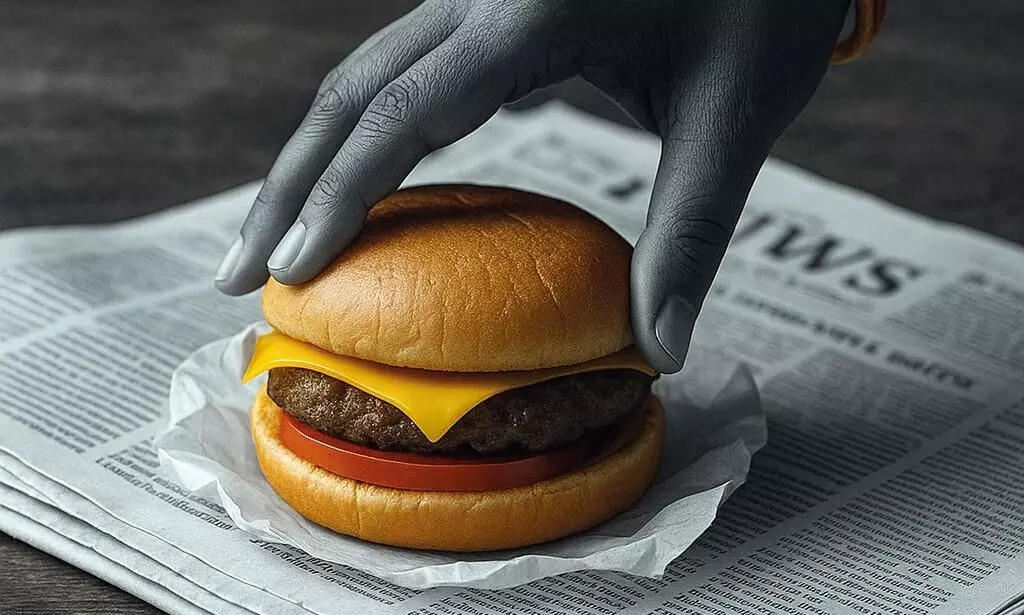Politics of Everyday Consumption
Not through protests or bans, but through small, everyday choices, consumers in India and China are rewriting the rules of globalisation—and unsettling the West’s cultural script

There was a time when queuing outside a fast-food outlet meant queuing up for a slice of modern life. Today, the same neon lights flicker over emptier counters, and the silence feels political. The world’s most powerful brands are discovering that the most radical rebellions may begin not with riots, but with appetites that quietly turn away. A quiet rebellion is unfolding across the streets of Shanghai and New Delhi. The golden arches of McDonald’s, once shorthand for aspiration and global belonging, are no longer as invincible as they seemed. Where queues once snaked outside for Big Macs and McFlurries, a new mood is emerging. It is not a fiery uprising or a state-sanctioned embargo, but something subtler and, in some ways, more powerful: consumers quietly choosing to turn away. The message is unmistakable: we no longer need your burgers to feel modern.
Echoes of Tagore and Swadeshi
This moment carries a haunting literary resonance. In Ghare Baire (The Home and the World), Rabindranath Tagore wrestled with the emotional dilemmas of the Swadeshi movement, when rejecting foreign cloth was as much about identity as economics. Tagore’s characters demonstrate that boycotts are never merely transactional; they permeate friendships, strain families, and blur the line between national pride and personal cost. Today’s unease with McDonald’s in India is not far removed from that century-old tension. Then it was Manchester cloth; now it is the burger. Both become symbols onto which more profound anxieties are projected: sovereignty, dignity, and the right to define one’s modernity.
India’s Boycott Dilemma
In recent months, Indian influencers and activists have urged boycotts of American consumer giants, including McDonald’s, Pepsi, and Coca-Cola, in the name of cultural self-assertion. The call taps into a potent sentiment: Western corporations should not dictate what progress tastes like. But here is the paradox. Unlike colonial factories, today’s franchises are deeply embedded in India’s economy. McDonald’s outlets employ thousands of young Indians from modest households, who rely on these wages to fund their education, care for their parents, and sustain rural families through remittances. A boycott may wound American brand prestige, but unless carefully managed, it could also wound Indian livelihoods. This is where policymakers must step in. Suppose national pride translates into a deliberate pivot away from Western brands. In that case, it must be accompanied by protective measures, such as reskilling schemes for displaced workers, incentives for local food chains, and credit for small entrepreneurs who can develop homegrown alternatives. Otherwise, the symbolism of rejecting the burger risks becoming a hollow gesture of cultural victory at the expense of social justice.
China’s Silent Convergence
China’s stance is more muted but no less instructive. Beijing has not called for boycotts, but it does not need to. For decades, the state has shielded its domestic market, nurtured local giants, and ensured that Western brands remain secondary to local culture rather than arbiters of cultural life. The result is that even without slogans, consumer preference naturally tilts inward. The convergence is striking, placed beside India’s more vocal activism. The two most populous nations, representing nearly 3 billion people, are arriving at the same conclusion: Western consumerism is not the final word on modernity. This is not coordination; it is cultural parallelism.
Global Dominoes
If replicated across markets, the consequences could be profound. Analysts estimate that by 2026, U.S. fast-food chains may lose $18–$22 billion in overseas sales. Pepsi and Coca-Cola could see revenue fall by $25–30 billion if boycotts spread to Europe and Canada. Franchise models may shrink by $12–15 billion as local partners pivot to regional brands. The S&P 500 could dip 3–5 per cent from investor jitters over brand vulnerability. These are not abstract numbers. They reflect the sheer scale of U.S. corporations’ reliance on international markets. If Asian consumers begin voting with their wallets, tremors will surely be felt in New York, as in Mumbai.
More Than a Burger
But this moment is not just about economics. It is about the politics of everyday consumption. The West’s cultural message has been clear for decades: modern life comes in a branded wrapper. India and China are challenging that orthodoxy. They ask whether modernity can be plural, rooted in local tastes and histories, rather than homogenised into burgers, fries, and fizzy drinks. Yet here lies the danger. As Tagore warned, nationalism without empathy can hollow out the homes it seeks to defend. A boycott that erodes working-class security risks reproducing the same inequities it claims to resist. The task, then, is not only to reject but to reimagine.
Every act of consumption carries weight. Whether to buy or not to buy a burger is no longer a trivial choice; it is a cultural statement. But it must also be a humane one. If India wishes to lead a quiet boycott, let it be a transition that uplifts workers, strengthens local enterprise, and demonstrates that pride can coexist with compassion. The power of the modern consumer lies not in noise but in nuance. In the age of quiet rebellions, the most radical act is not a shouted slogan but a whispered refusal. Change, after all, may be less about burning flags.



